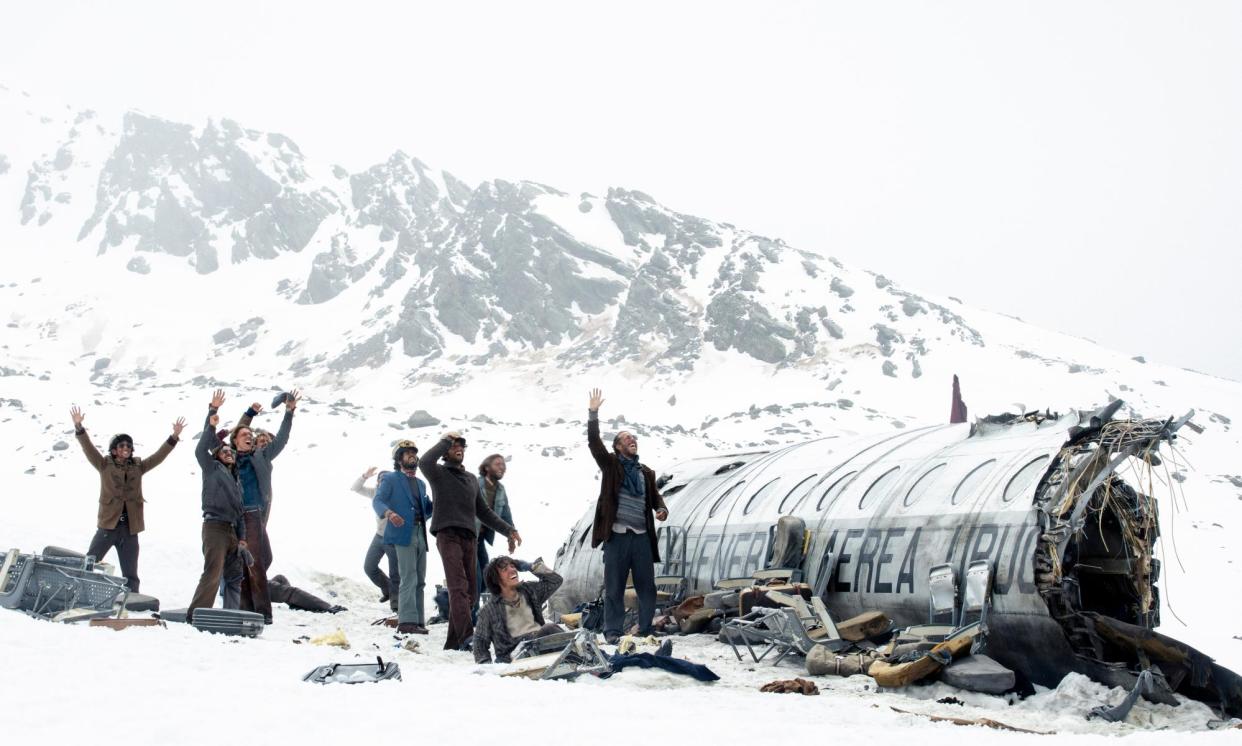Society of the Snow review – cannibalism in the ice in incredible real-life survival tale

The story of the 1972 Uruguayan air crash in the remote Andes, and the ordeal of the survivors who resorted to cannibalism, is powerfully retold in this movie from Spanish director JA Bayona. It is based on the book of the same name by Uruguayan journalist Pablo Vierci and not (or only indirectly) taken from Piers Paul Read’s pioneering 1974 classic Alive: The Story of the Andes Survivors which popularised the idea that their cannibalism had become a kind of mysterious secular Eucharist, eating the blood and body of one’s fellow human beings to stave off death, in a profound spirit of fellowship and love.
Perhaps no movie about this extraordinary case can quite encompass what in some ways is its most poignant part: the aftermath, as the nation’s joy was complicated when the (initially withheld) news about cannibalism leaked out. And there is a tonal issue, in life as in art: is there an element of horror in this story which can’t quite be acknowledged? Bayona himself has directed a scary movie, The Orphanage, and an emotional story of survival, The Impossible, so he is maybe uniquely qualified to take this on.
Bayona hits a strong, clear storytelling stride right away: the passengers were rugby players heading to a game in Chile with friends and family. We begin with a rugby match, with teasingly ambiguous hints about their behaviour under pressure. Some are better at teamwork than others. There is the terrible crash; drinking water is not a problem because of the snow, but gnawing hunger sets in. Dead bodies are preserved in the icy temperatures and the awful decision has to be made, at first more agonising because many suspect that rescue is surely only days away: how will it look if some refused this loathsome, greedy desecration and some didn’t? Bayona shows us a kind of schismatic disagreement, between the people who detested the idea and those who accepted it – and also between the people who were eaten without their permission and those who emotionally gave this permission in advance, like organ donors.
At any rate, no help arrives and there is no nobility in just starving to death. Some of the men take the decision to cut up the corpses out of sight of the others, and so for a while become themselves complex figures: part priests and part untouchables. The film itself downplays the explicit revulsion of what was happening, in favour of highlighting the agony and tough resilience in the gruelling conditions. The horror of being buried in an avalanche while cowering in the wrecked fuselage (basically, a second disaster to match the crash) is followed by the decision taken by two to trek across the mountains to Chile on a desperate quest to get help.
Some of the strange, dark mystery of the Andes case is overlooked by Bayona; the weird suspicion that the experience has made the survivors “post-human”. Yet this is a fervent film, heartfelt and shot with passion and sweep.
• Society of the Snow is released on 22 December in cinemas and on 4 January in Netflix.

 Yahoo Movies
Yahoo Movies 
